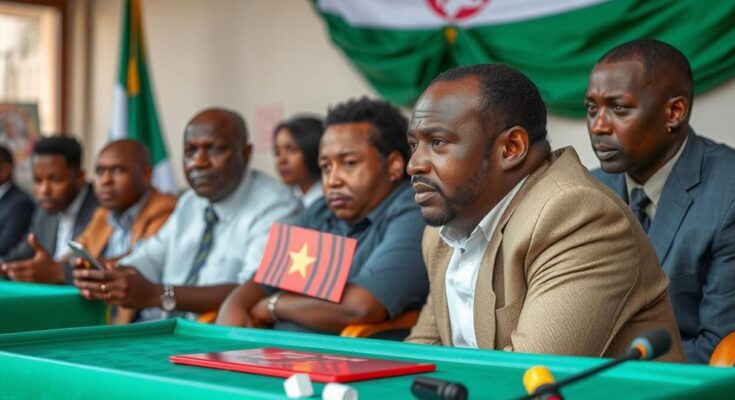Comoros held a parliamentary election on Sunday, with key opposition parties boycotting due to allegations of authoritarianism under President Azali Assoumani. Approximately 330,000 voters are registered, but low turnout is expected. Assoumani’s party previously secured significant victories, but opposition claims question the legitimacy of elections. Assoumani’s presidency has faced ongoing scrutiny since his rise to power in 1999, marked by controversies surrounding electoral integrity and political repression.
Comoros conducted a parliamentary election on Sunday amidst a boycott led by several opposition leaders who accused President Azali Assoumani and his ruling party of adopting increasingly authoritarian practices that jeopardize the election’s integrity. Voters were tasked with deciding on the 33 seats in the legislature, with results anticipated next week according to the national electoral commission. Despite approximately 330,000 registered voters in the nation of 850,000, there are concerns regarding low participation due to general discontent with the political system.
President Assoumani’s political party previously dominated the last parliamentary election in 2020, securing 20 out of 24 contested seats. Assoumani participated in the voting process himself in his hometown of Mitsoudjé. The opposition labeled the prior 2020 election a “masquerade” and expressed skepticism about the fairness of the electoral process. This sentiment persisted following Assoumani’s recent re-election, which had been marked by allegations of fraud leading to public unrest.
Notably, the Juwa Party, led by former President Ahmed Abdallah Sambi, was among those boycotting the election, citing the reasons to be consistent with their previous stance in 2020. Comoros, comprising three islands near Madagascar, has experienced numerous military coups since achieving independence from France in 1975; Assoumani first gained control of the presidency in 1999 after a coup.
Assoumani, who briefly stepped down in 2006, returned to power and comprehensively changed the constitution in 2018, enabling him to bypass term limits and reject a rotational presidency agreement among the islands. The Africa Center for Strategic Studies, a U.S.-based research entity, indicates that Assoumani’s tenure is characterized by increasing political repression and lack of competitive elections. Despite the looming threat of Tropical Cyclone Dikeledi, electoral officials proceeded with the voting process.
The political landscape in Comoros has been turbulent, with a history of military interventions and shifting power dynamics. President Azali Assoumani, a former military officer, has been a central figure in this tumult since 1999. The recent elections are scrutinized against a backdrop of frequent claims of electoral malpractice and authoritarian governance. Assoumani’s contentious constitutional amendments have further heightened political tensions, as opposition groups express growing frustration over the state of democracy and the integrity of electoral processes.
In conclusion, the parliamentary elections in Comoros held on Sunday reflect the deeper political strife facing the nation, characterized by significant opposition boycotts and allegations of authoritarian governance. The anticipated low voter turnout underscores widespread disillusionment with the electoral process, and the legacy of Assoumani’s leadership continues to provoke intense debate regarding the future of democracy in Comoros, amid fears of political repression and instability.
Original Source: www.seattletimes.com




